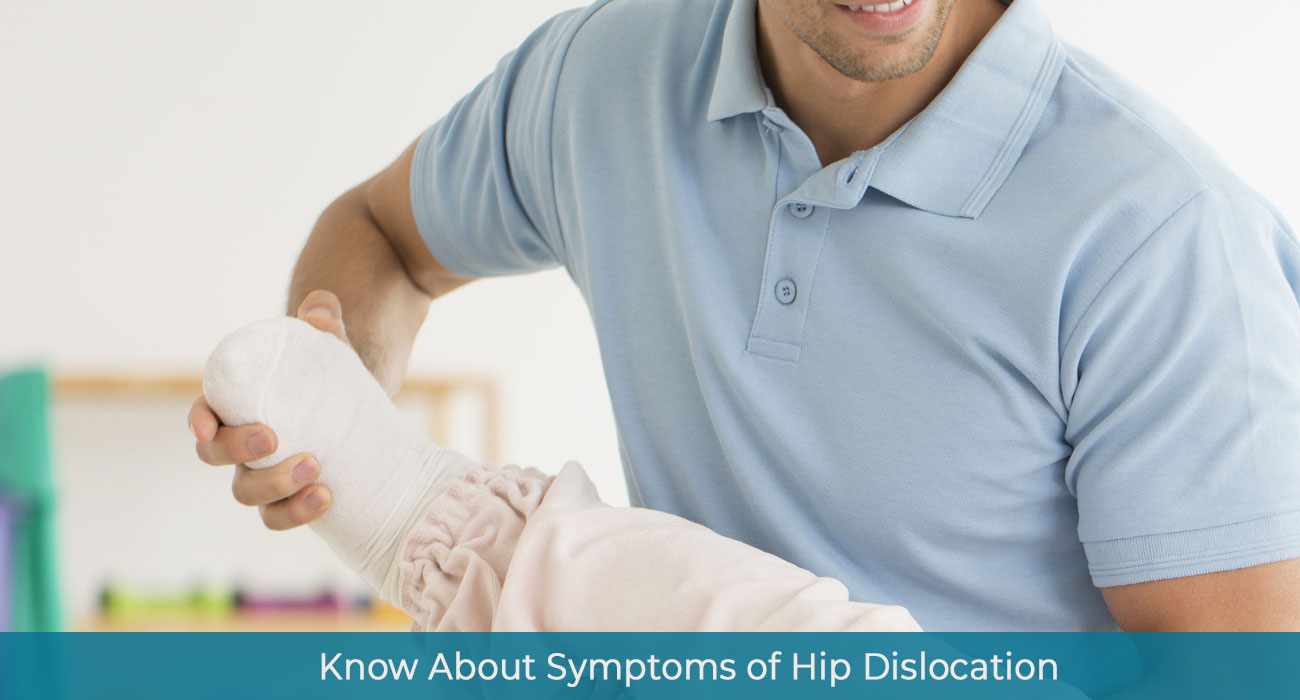Know About Symptoms of Hip Dislocation
05/17/2021
Do you feel that your hip is painful, swollen, or out of place that it could be seen visually? That could be the symptoms of hip dislocation. Know about the various signs that you should look out for in a dislocated hip. We will also state about the various types of treatments offered by the specialist to get started on rapid and safe recovery. If you have are suffering from a hip dislocation, you can visit an orthopaedic hospital in Jaipur for the best treatment.
What is Hip Dislocation?
When the femoral head of the thighbone is displaced forward or backward out of the hip bone socket, the hip dislocation occurs. As a result, it could cause the labrum, nerves, muscles, ligaments, and other soft tissues to support the bones in place to become damaged or injured.
Patients who encounter a dislocated hip are generally in violent pain and helpless to move their legs. The position of the leg may likewise appear unusual when connected to the opposite side of the body. Patients may also experience feel numbness in the foot or ankle area if there is nerve deterioration. Additional symptoms are:
- Limping
- Abnormal warmth around the hip
- Groin pain
- Difficulty sleeping on the hip
Ultimately, imaging applications will be required to substantiate the dislocation and look for additional injuries that may have arisen. Your hip specialist will offer a comprehensive exam to rule out any further damages.
What are the complications of a dislocated hip?
Common problems include the following:
- Sciatic nerve injury: The nerve passes behind the hip and can be expanded and injured with a hip dislocation.
- Avascular necrosis of the femoral head: Hips joint loses its range of motion because of arteries cutting off the blood supply. Hence, it may then require hip replacement surgery. For this reason, the objective is to lessen a dislocated hip as soon as possible. A follow-up in best hospital in Jaipur for an MRI of the hip is usually proposed at six weeks to look for this complication.
- Osteoarthritis of the hip joint
- Recurrent hip dislocation
Hip Dislocation Treatment
If you don’t want any long-term complications from the hip dislocation, then hip dislocations should be diagnosed and managed early. Typically, a patient’s hip can be maneuvered back into place while they are slightly sedated. This non-surgical method is called a reduction. Your specialist will then demand another set of x-rays or a CT scan to establish that the bones are in the correct position after the procedure.
Occasionally the hip cannot be relocated, even with the patient going through general anesthesia. A CT scan may be called for to look for minor bone fragments that may have broken off the acetabulum or portions of torn ligament or cartilage that follow in the way of the relocation. In this condition, open reduction is recommended, meaning that an orthopedic surgeon has to work to get rid of any foreign objects in the joint and then scale down or supplant the hip back into its socket. Sometimes surgeons do this utilizing arthroscopic surgery.
Further treatment in hip replacement surgery in Jaipur may be needed if you damage the labrum or tissues enveloping the hip as a result of a dislocation. Your doctor may recommend a hip arthroscopy. This is a minimally-invasive procedure that utilizes miniaturized devices and a small camera to examine the hip joint. Your physician can then make any urgent repairs to the surrounding ligaments or soft tissue.
It usually takes a few months for the hip to regenerate after a dislocation. If there are other fractures, recovery time may take longer. Your doctor might suggest limiting hip motion for several weeks to downplay the chance of your hip dislocating again. Physical therapy is generally advocated during recovery in addition to walking aids like canes, walkers, and crutches.

